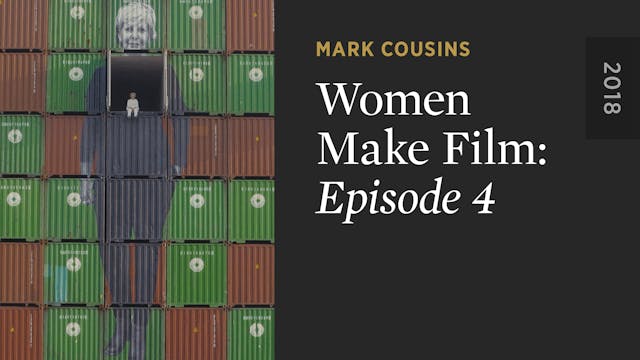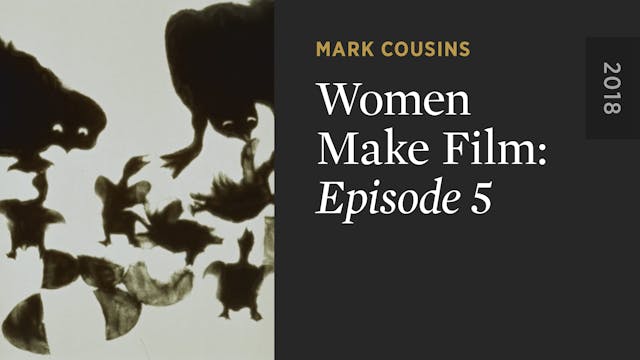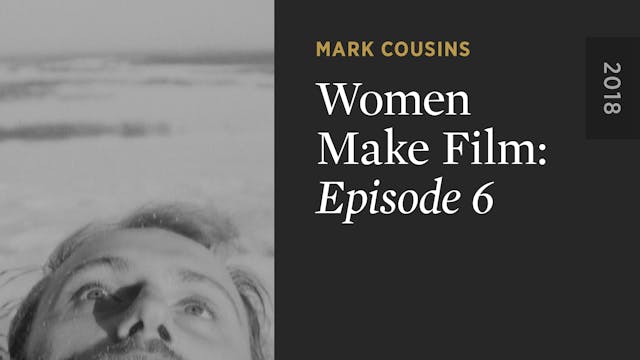Directed by Mark Cousins • 2018 • United Kingdom
“Conversation”
A basic human interaction—how to make it cinematic? Angela Schanelec directs us to focus on body language in PLACES IN CITIES, Cecile Tang uses the zoom as guide through the emotional shifts in THE ARCH, and Sofia Coppola in THE VIRGIN SUICIDES shows us an unspoken conversation, with songs and split screens telling a story of impossible longing.
“Framing”
Frames describe and paint the scenes. They can make sport look balletic, like in controversial Nazi iconographer’s Leni Riefenstahl’s OLYMPIA. They shape the cinematic world—through impressionist glances in Kathryn Bigelow’s BLUE STEEL, suffocating close-ups in Lucrecia Martel’s THE HOLY GIRL, and camera angles as extreme as the titular character’s emotions in Mahalia Belo’s ELLEN.
“Tracking”
Tracking shots are to many an essence of filmmaking magic. They can ask questions and speak when hardly anyone else in the film is talking—like in Chantal Akerman’s FROM THE EAST or Marion Hänsel’s LE LIT. In Antonia Bird’s FACE, a seamless tracking shot gives us an illusion of the camera being an extension of our eyes. Kinetic in nature, tracking can help dynamically show and express a desperate escape, like in Ursula Meier’s HOME.
Up Next in Women Make Film
-
WOMEN MAKE FILM: Episode 4
Directed by Mark Cousins • 2018 • United Kingdom
“Staging”
Scene staging is an element of film form pointing clearly to cinema’s origin: theater. Kinuyo Tanaka uses staging in THE MOON HAS RISEN to shape the scene’s invisible geometry, accentuating the tension between characters. Maren Ade stage... -
WOMEN MAKE FILM: Episode 5
Directed by Mark Cousins • 2018 • United Kingdom
“Adult/Child”
Most famous movie genres—war pictures, westerns, etc.—are about adults, but in this chapter, Jane Fonda narrates the story of eighteen films about children, from Germany, Belgium, Mongolia, Sweden, Russia, Canada, Senegal, Argentina,... -
WOMEN MAKE FILM: Episode 6
Directed by Mark Cousins • 2018 • United Kingdom
“POV”
Is cinema the art of point of view? Jocelyn Moorhouse, Ida Lupino, Edith Carlmar, Sofia Coppola, Liliana Cavani, Kelly Reichardt, Larisa Shepitko, Jennifer Kent, and other great directors demonstrate the art of POV.“Close-Up”
Films from Be...



